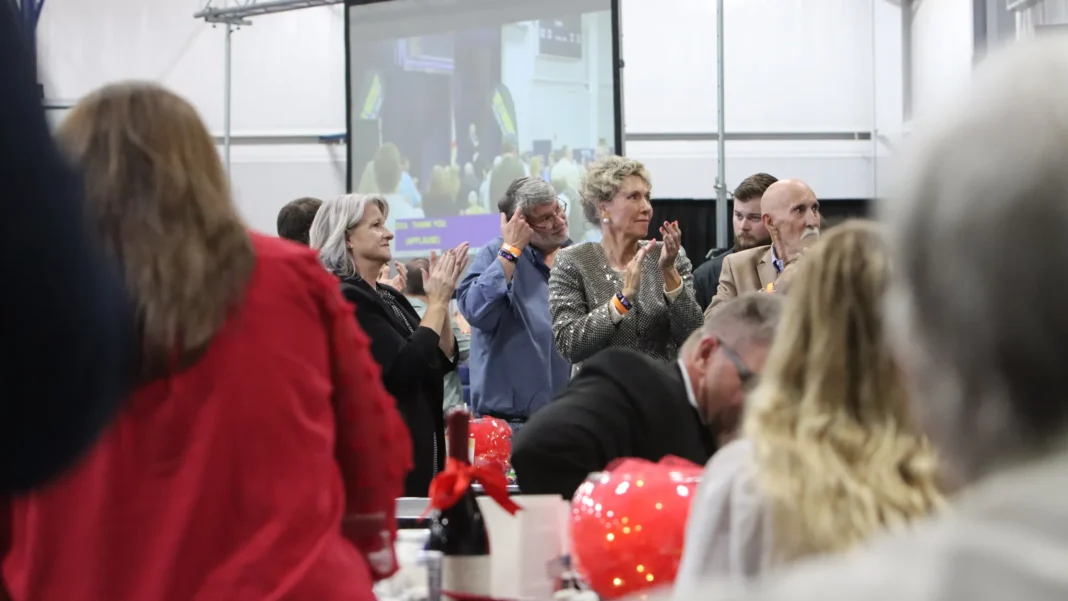The political landscape in South Carolina is ablaze with controversy as the House races intensify, driven by allegations of infidelity and political intrigue. These scandals have thrown the campaigns into turmoil, drawing national attention and shaking voter confidence. In this article, we delve into the details of these allegations, their impact on the races, and the broader implications for South Carolina’s political future.
Infidelity Allegations: A Deep Dive
Infidelity allegations have surfaced against several candidates, casting a shadow over their campaigns. One of the most prominent cases involves Representative John Doe, who is accused of having an extramarital affair with a staff member. This revelation has not only tainted his personal reputation but also raised questions about his professional integrity.
The accusations were brought to light by an anonymous source, who provided evidence in the form of text messages and emails. These documents suggest a long-term relationship that contradicts Doe’s public image as a family man. The scandal has dominated headlines, with opponents seizing the opportunity to undermine his campaign.
Political Intrigue: Power Plays and Backroom Deals
Beyond personal scandals, the South Carolina House races are also marred by political intrigue. Reports of backroom deals and power plays have emerged, indicating a deeper level of manipulation within the political sphere. Allegations of vote-buying, coercion, and unethical lobbying practices have surfaced, further complicating the electoral landscape.
One notable instance involves Candidate Jane Smith, who allegedly struck a deal with a major lobbying group to secure financial support in exchange for favorable policy promises. This revelation has sparked outrage among voters, who feel betrayed by the manipulation of their democratic process.
The Impact on Campaigns
These scandals have had a profound impact on the campaigns. Polls show a significant shift in voter sentiment, with many expressing disillusionment and skepticism towards the candidates involved in these controversies. Campaign strategists are scrambling to manage the fallout, focusing on damage control and attempting to shift the narrative.
In response to the allegations, Representative John Doe has issued a public apology, admitting to the affair and asking for forgiveness. However, his efforts to salvage his campaign may be too little, too late. Voters are questioning his judgment and ability to lead with integrity.
Meanwhile, Jane Smith has denied any wrongdoing, labeling the accusations as a smear campaign orchestrated by her opponents. She has called for an independent investigation to clear her name, but the damage to her reputation is palpable.
Voter Reaction and Public Sentiment
The voter reaction has been swift and vocal. Social media platforms are abuzz with discussions about the scandals, with hashtags like #SCScandal and #PoliticalIntrigue trending. Public sentiment is overwhelmingly negative, with many voters expressing a loss of trust in the political system.
Local town halls and community meetings have seen a surge in attendance, as constituents demand answers from their representatives. There is a growing call for greater transparency and accountability in political campaigns, with many advocating for stricter regulations to prevent such scandals in the future.
Broader Implications for South Carolina Politics
The implications of these scandals extend beyond the immediate House races. They highlight a pervasive issue of ethical lapses and corruption within the political framework. This erosion of trust could have long-term consequences for voter engagement and participation in future elections.
Political analysts suggest that these scandals could catalyze a broader movement for reform in South Carolina. There is a growing momentum for the establishment of an independent ethics commission to oversee political conduct and ensure accountability. Additionally, calls for campaign finance reform are gaining traction, aiming to reduce the influence of money in politics and prevent unethical practices.
Moving Forward: A Path to Redemption?
As the South Carolina House races continue, candidates are facing immense pressure to address these scandals head-on. Transparency, accountability, and integrity are the watchwords for any campaign hoping to regain voter trust.
For Representative John Doe, the road to redemption involves not only personal accountability but also a commitment to ethical governance. He must demonstrate genuine remorse and take concrete steps to prevent future misconduct.
Jane Smith, on the other hand, needs to provide clear and convincing evidence to refute the allegations against her. An independent investigation could be a crucial step in restoring her credibility.
Conclusion
The South Carolina House races are at a critical juncture, with scandals of infidelity and political intrigue dominating the narrative. These controversies have shaken voter confidence and underscored the need for greater transparency and accountability in politics. As the campaigns unfold, the onus is on the candidates to address these issues head-on and restore faith in the democratic process.



